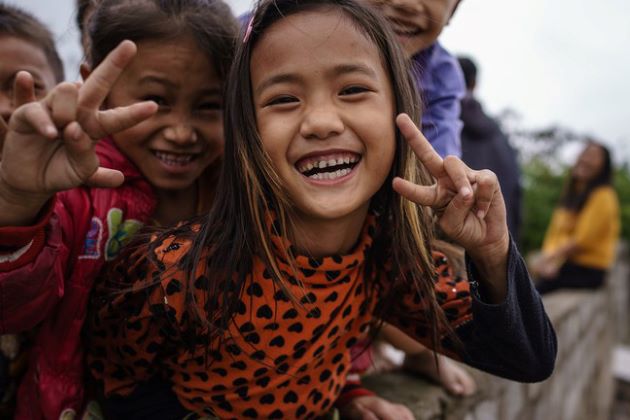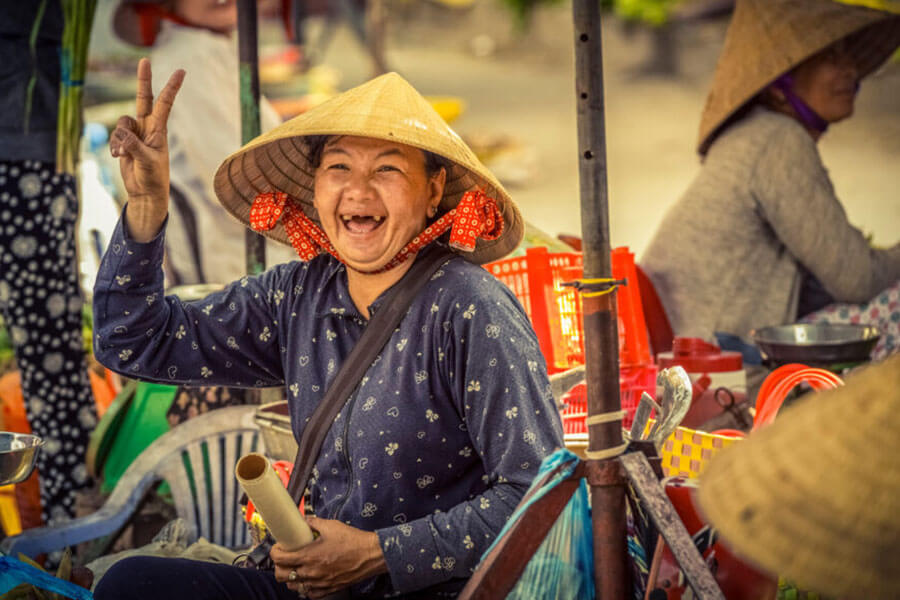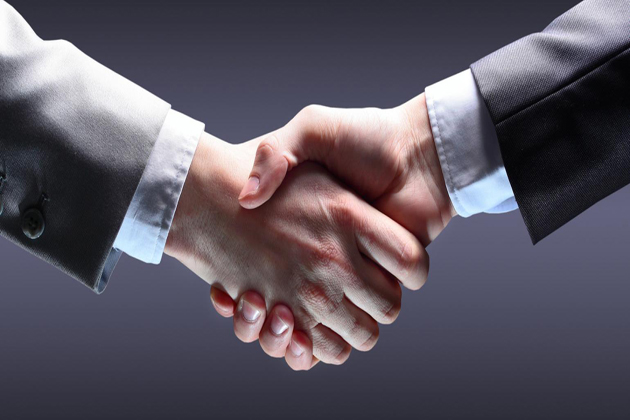Visiting Vietnam, it had better understand the Vietnamese customs and gestures for the wonderful experience and memories. Hopefully, this shortened and comprehensive guide will help you avoid impoliteness as well as win Vietnamese people's hearts.
How Do the Vietnamese Greet Each Other?
Vietnamese men generally great each other by shaking hands and bowing slightly. However, when greeting women, they bow slightly and nod because Vietnamese women commonly avoid physical contact with the opposite sex and do not shake hands. Vietnamese also often abstain from shaking hands with seniors and elders. In order to show respect, many traditional Vietnamese people bow their heads to senior or older. Unlike in Japan, the depth of the bow in Vietnam is not a matter.
- Elderly people always have priority and respect in society Vietnam. So always greet the eldest first.
- To address someone in a formal way, use Mr. or Ms. with their first name to greet them.
- When saying goodbye, Vietnamese also shake hands or bow slightly.
Public Customs in Vietnam
As in the rest of Asia, public displays of affection are not encouraged in Vietnam. In general, Vietnamese people are still rather cautious when it comes to affection for the opposite sex. While kissing or hugging with your partner is considered acceptable in big cities like Hanoi or Saigon, it is a social taboo elsewhere in Vietnam. When encountering Vietnamese of the opposite sex, sometimes a handshake is okay. A lower bow or nod is safer but a kiss on the cheek is a bad idea. It is best not to touch the opposite sex.
Holding hands or placing an arm on the shoulders of a person of the same sex is what Vietnamese close friends do. It does not mean sexual connotation, homosexuality, or anything else. In the city streets, you will often see young girls - and sometimes even older women - holding hands.
Talking loudly with excessive gestures is considered rude, especially as a woman. To show respect, the Vietnamese bowed their heads and did not look into the eyes of the elderly. To avoid confrontation or lack of respect in public, many will not speak out.
Shorts should only be worn at the beach. There are still many tourists wearing them and the Vietnamese are accustomed to it. When visiting churches or temples, visitors shouldn’t wear hats. Put your hat in your hand when talking to a person of high status or authority such as the police.
Vietnamese Gestures & Body Languages
There are some common Vietnamese gestures and body language every tourist should know in Vietnam vacation:
- Nodding: a greeting, affirmative answer, or sign of agreement;
- Shaking one’s head: a negative response, a sign of disagreement;
- Bowing: a greeting or sign great respect;
- Frowning: an expression of frustration, anger, or anxiety;
- The fingertips and thumbs meet to form a circle, the other finger is vertical (OK sign): means 'poor quality' or zero;
- Avoiding eye contact: show respect for the elderly or the opposite sex;
- The middle finger crosses over the index finger or index finger crosses over the middle finger (cross fingers) with other fingers close on the palm: porno gestures;
- Crossed arms: a sign of respect.
- Placing one or both hands in the pocket or on the hip while talking: convey arrogance, lack of respect.
- Vietnamese - especially women - sometimes cover their mouths when talking, laughing, or giggling like a humble expression.

Taboos & Rude Behavior in Vietnam
- Wearing a white headband is only for funerals.
- Do not touch the head of anyone or pass anything over someone's head. The items should be passed by both hands.
- Insults to elders or ancestors is a serious offense and can destroy a social relationship. Also: Do not point your finger into someone’s face, stand with your hands on your hips, or cross your arms. And do not touch the shoulders of strangers.
- Turning your back on a person, especially an older person or a higher status person, pointing at someone while talking, placing your feet on the table, or sitting on the table while talking are considered rude and disrespectful. Blinking is also considered indecent, especially when directed at the opposite sex.
- Vietnamese people like to take pictures. However, try to avoid photographing three people together because this is supposed to bring black to the middle.
- Avoid discussions about politics and do not joke about death, Ho Chi Minh, and Vietnam's great generals. A discussion of sexual matters is prohibited. In addition, do not ask Vietnamese personal questions like "How old are you?", "Are you married?", "Do you have children?”. However, Vietnamese often ask foreigners these questions. If you are over 30 and single and asked if you are married, it is best to lie yes, otherwise people will feel sorry for you. No wife and children are considered unlucky.






Why do Vietnamese women run their fingers down their face with what appears to be concerned expression
I would like to meet eligible Vietnamese women to date. How do I contact them?